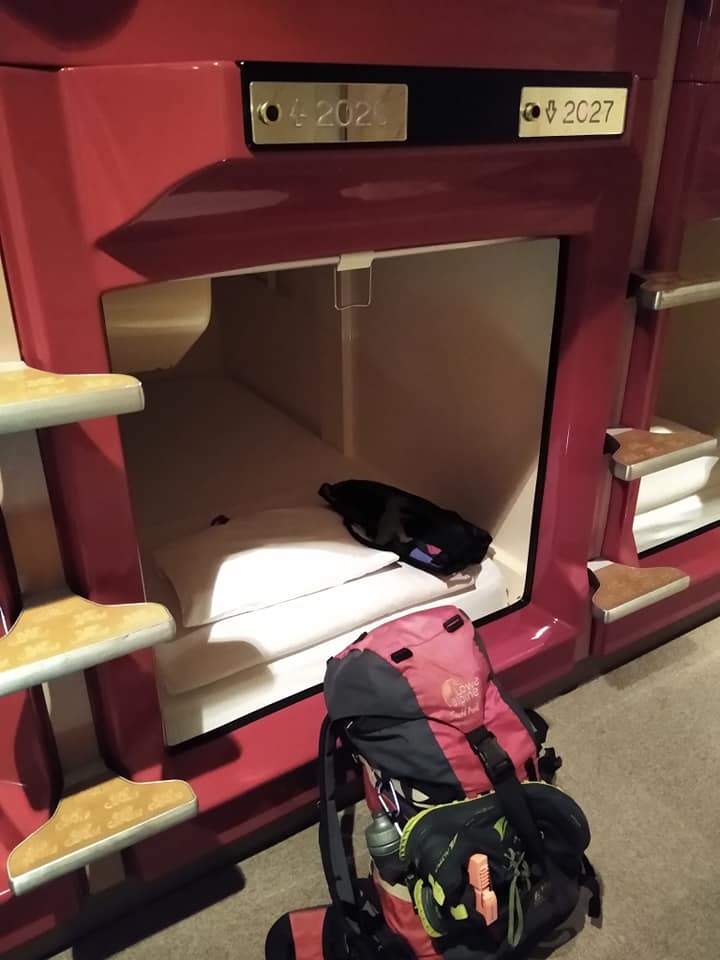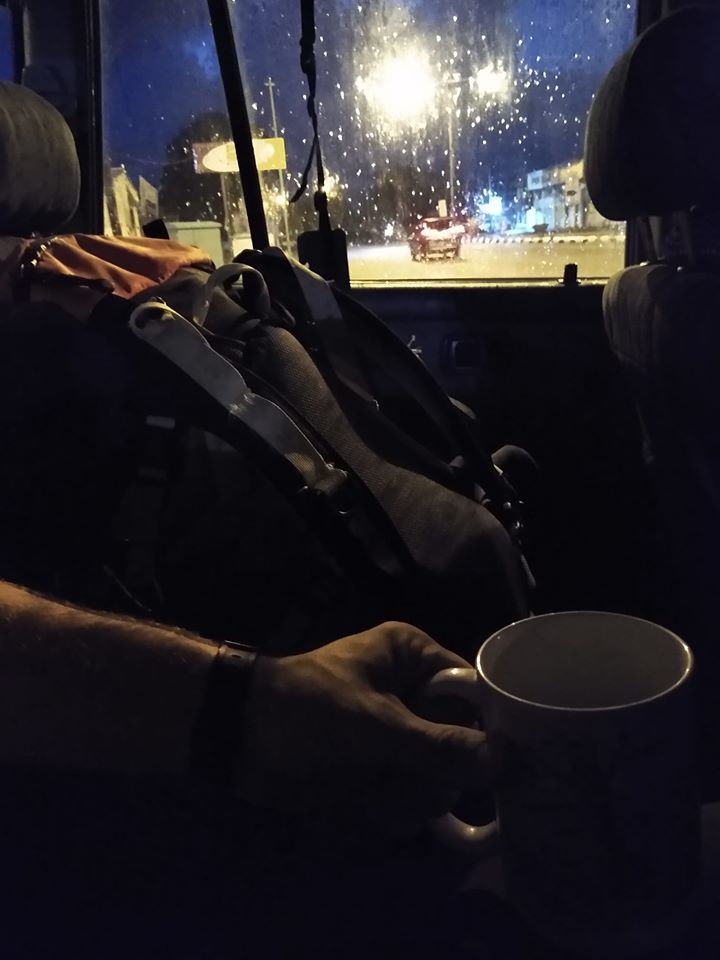
Of Public Bathing and Barriers Unbroken
Travel Journal, 47
The watch on my wrist said 11:40 p.m. They lock the hotel doors at midnight.
“I have time,” I thought as I hurried off the Keikyu train at Heiwajima station in Tokyo, Japan. The hour was so late that the Tokyo Monorail was no longer running. The commuter train got me to my station, but barely in time. It was late and I was tired. The only thing that I wanted was to wash away some of the travel funk and flop ungracefully onto bed.
The bed I procured for my one-night stay in Japan was located in a Capsule Hotel. Japan captured my heart upon my first visit. It’s everything you think of and more. Between the iconic aspects of traditional countryside and the energetic throes of downtown Tokyo, Japan leaves the traveler wanting more. One iconic hotel experience is the Capsule Hotel.
And it is what it sounds like.
A capsule. A friend describes it as a coffin. Rows and rows of coffin-like spaces are built into the wall. Each has its own TV, air controls, and privacy curtain. And at around 2700 yen per night ($26), it makes for a great option traveling on the cheap.
I weaved in and out of smallish alleys and under neon glow promising pachinko and ramen. Finally, I stepped into the doorway with five minutes to spare. Immediately, I knew that I may have a bit of trouble. The hotel was clearly not ideal for English-speaking travelers. Everything here oozed Japanese. It was clearly a place for the Japanese salaryman.
I took my shoes off and put on a pair of sandals at the door. The man at the counter was very gracious and patient, though he spoke no English. I placed my shoes in a locker in the entryway and collected my complementary PJs, which made me look like a really disheveled, poorly trained, and pasty-white ninja.
The elevator took me to the fifth floor and I found capsule 2027. Exhausted, all I wanted was shower and sleep. The facilities were on the next floor up. So, I collected my things and made the journey.
But as I walked up to what I thought was the shower room, my attention was drawn to a sign that said, “大浴場.”
Enter Google translate.
I actually knew one of the characters, and I was worried. And my memory was right. In essence, it was a bath. Then it hit me.
This hotel has no shower.
It has an Onsen.
A public bath.
“Well, it’s late,” I told myself, “who could possibly be up and using the public bath.”
I entered the room to find a minimum of seven naked, sprawling Japanese men soaking in all the luxury of a quiet bath.
Japan is famous for public baths. It’s a part of the culture that will never go away. The locals swear by soaking in the natural hot springs that bubble forth from the ground. I’m told that once you start using an Onsen, you just can’t stop. But something like this suddenly makes the traveler feel very foreign. Public bathing are two words Americans never use together.
But I’m a pro, right?
I can do this.
I took a big gulp, trying to swallow my midwestern pride.
Heads began to turn my direction.
I felt my heart thump.
Then I turned and walked away.
“Chicken,” I said to my prudish self.
Not every wall easily falls. I still have a few barriers of my own. And one day, I will step into the looking glass and conquer each of them. And the reward will be great.
Maybe one day when I’m on another jaunt into Japan with a group of friends, we’ll brace ourselves with camaraderie and gently slip into a hot Onsen. And perhaps all of our concerns and preconceptions will float away.
But until then, I bathe by myself, thank you very much.
anthony forrest
For those of you interested in exploring a crazy website, here is the link to the hotel. Try using your browser’s translate feature. http://www.mizho.net/
Other Looking Glass Stories:

